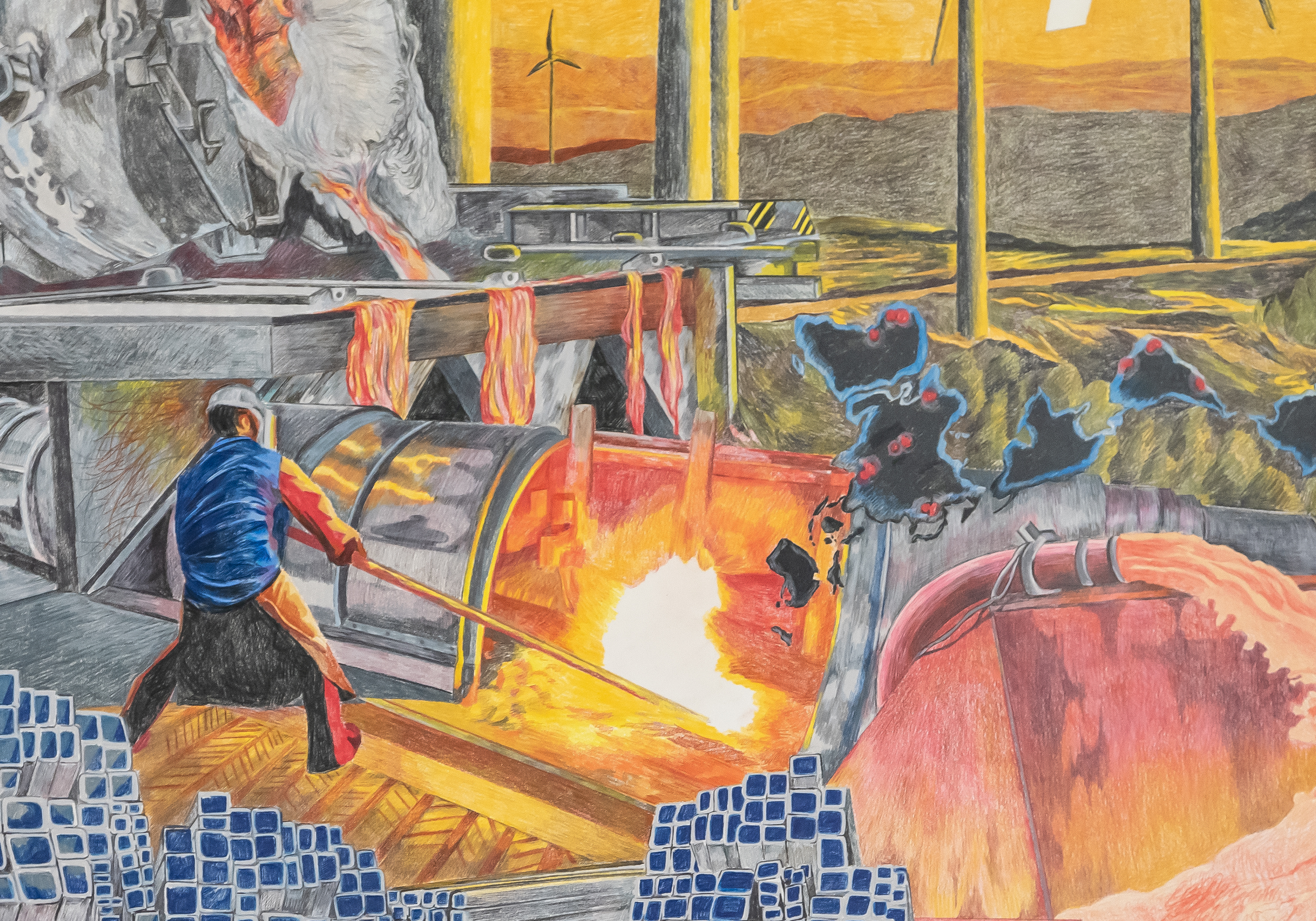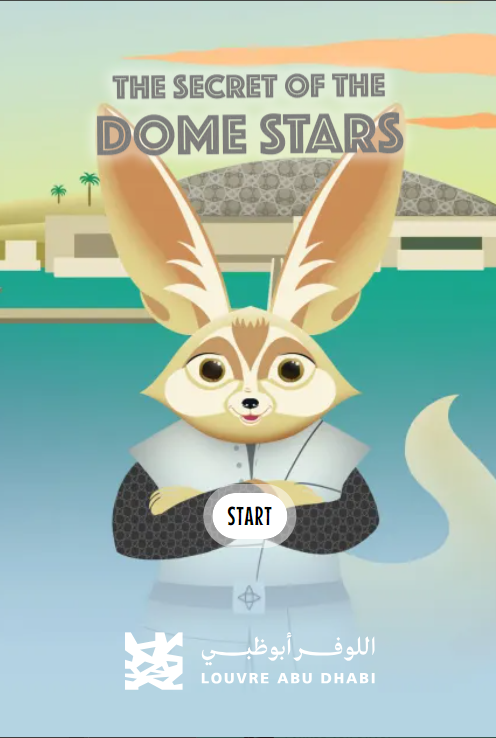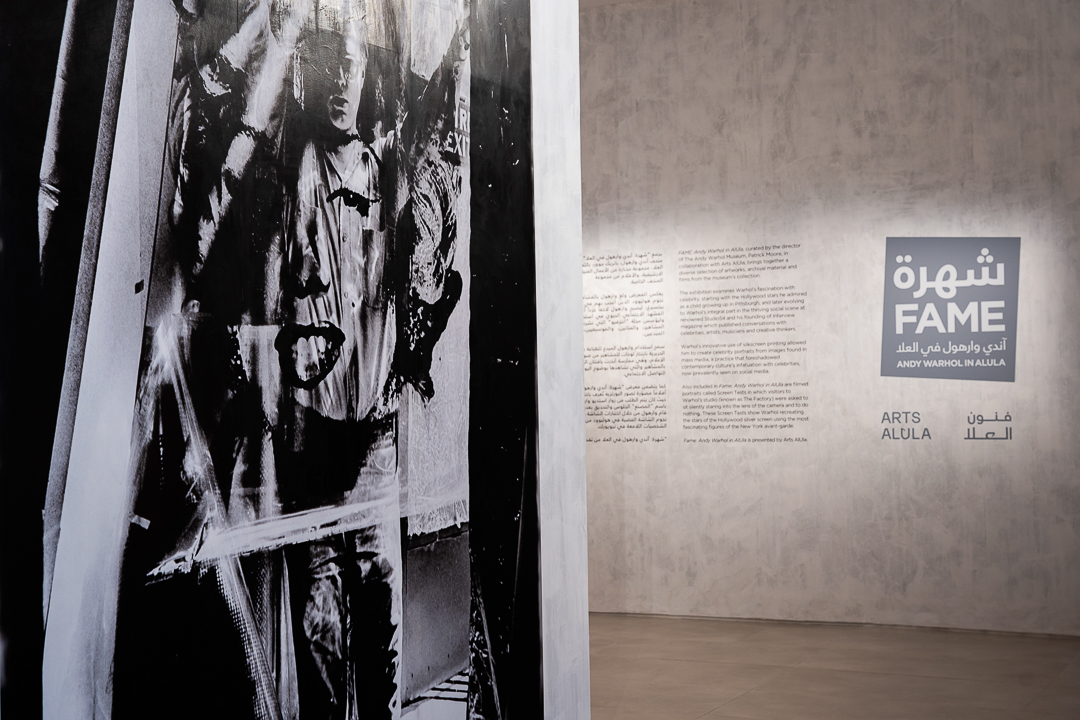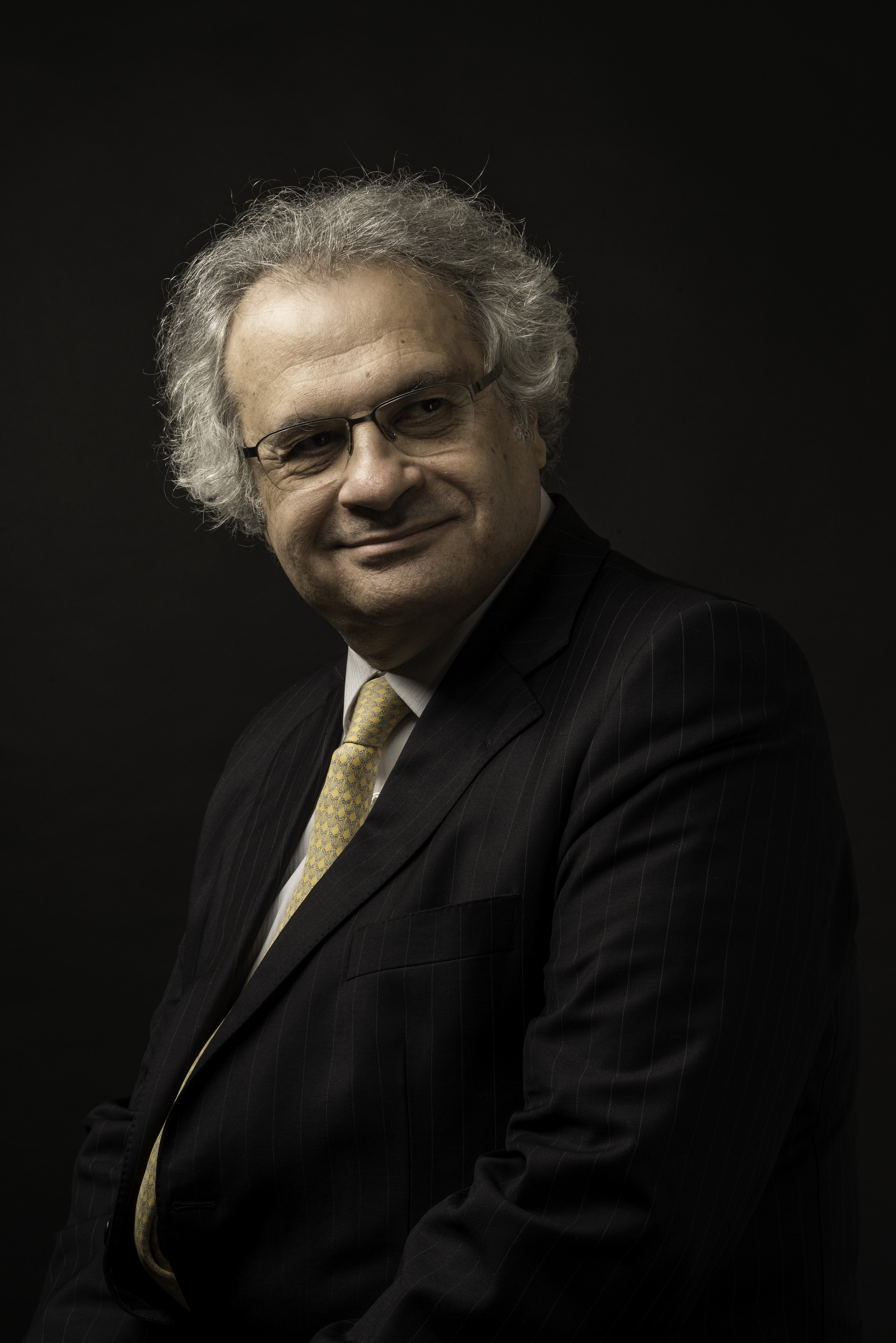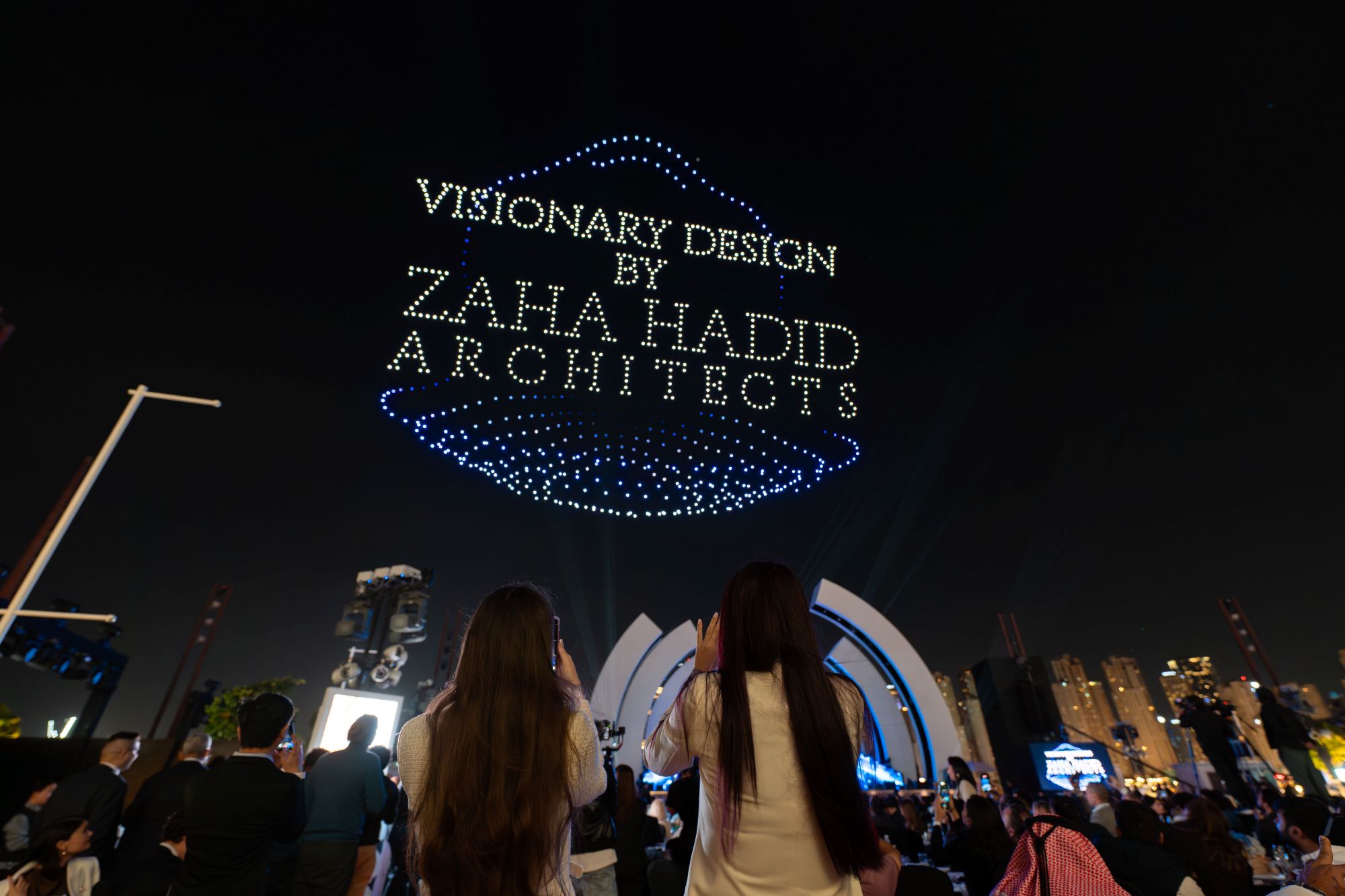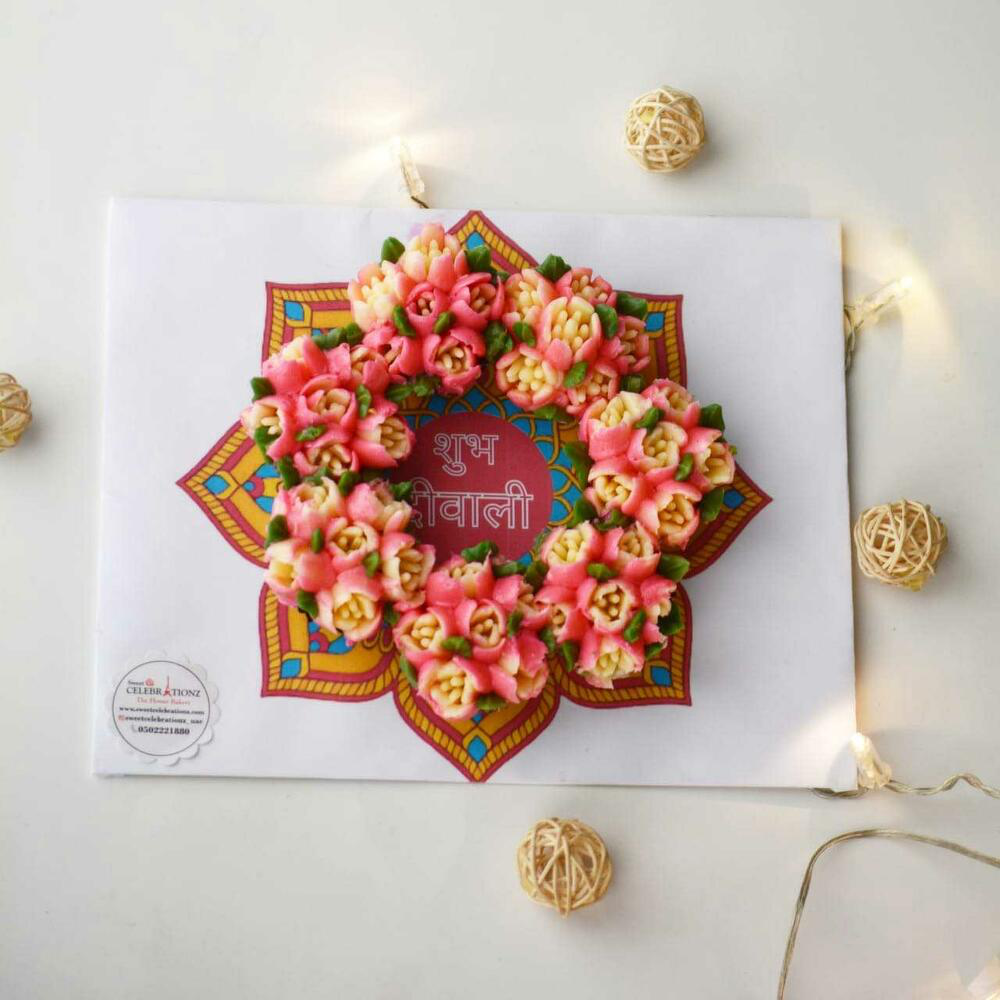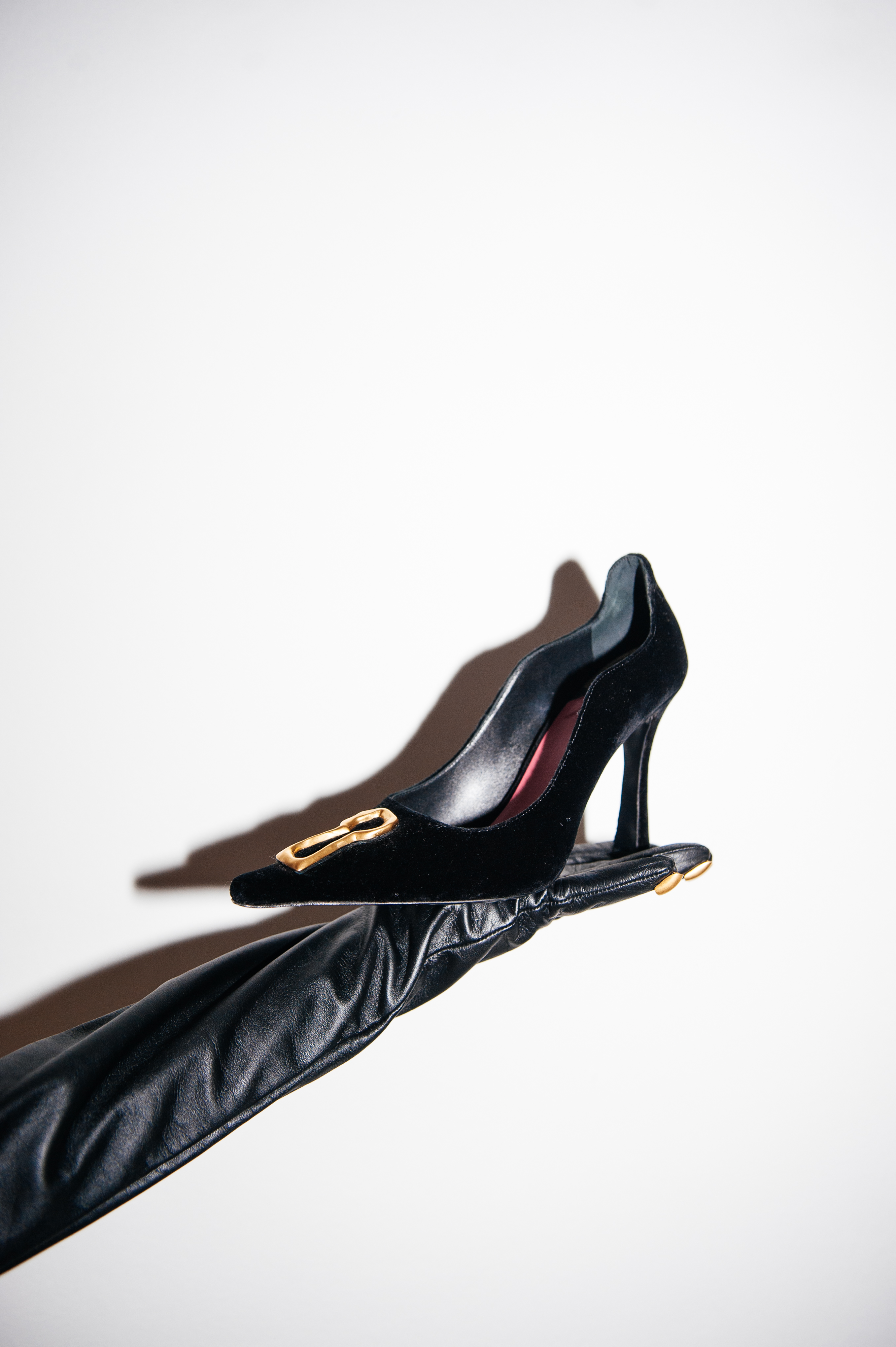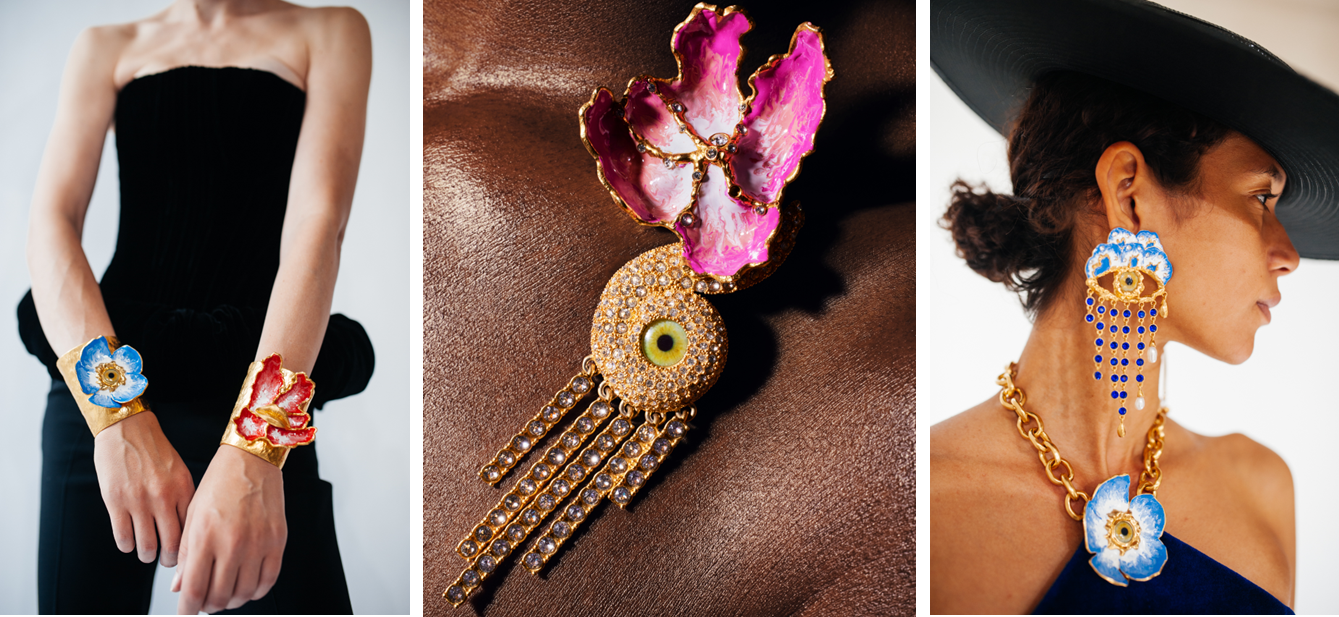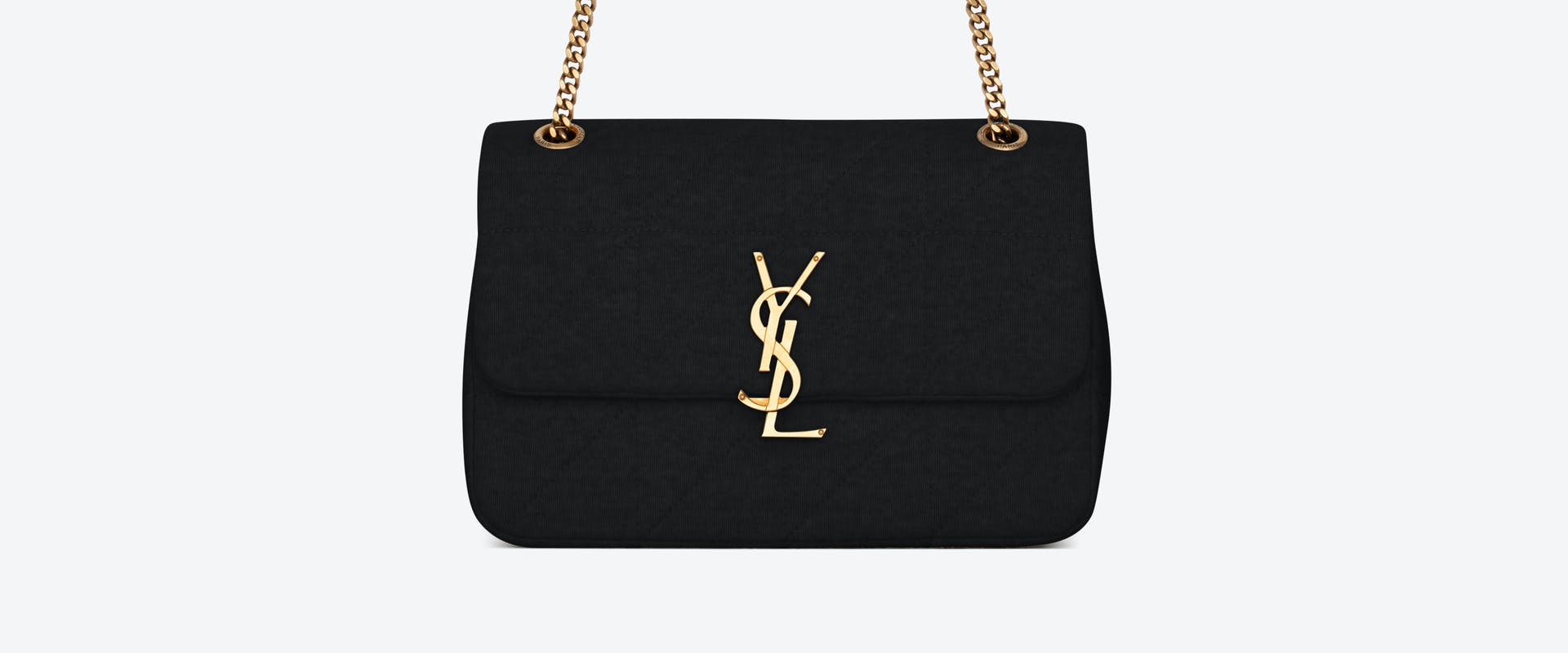Pressure Cooker
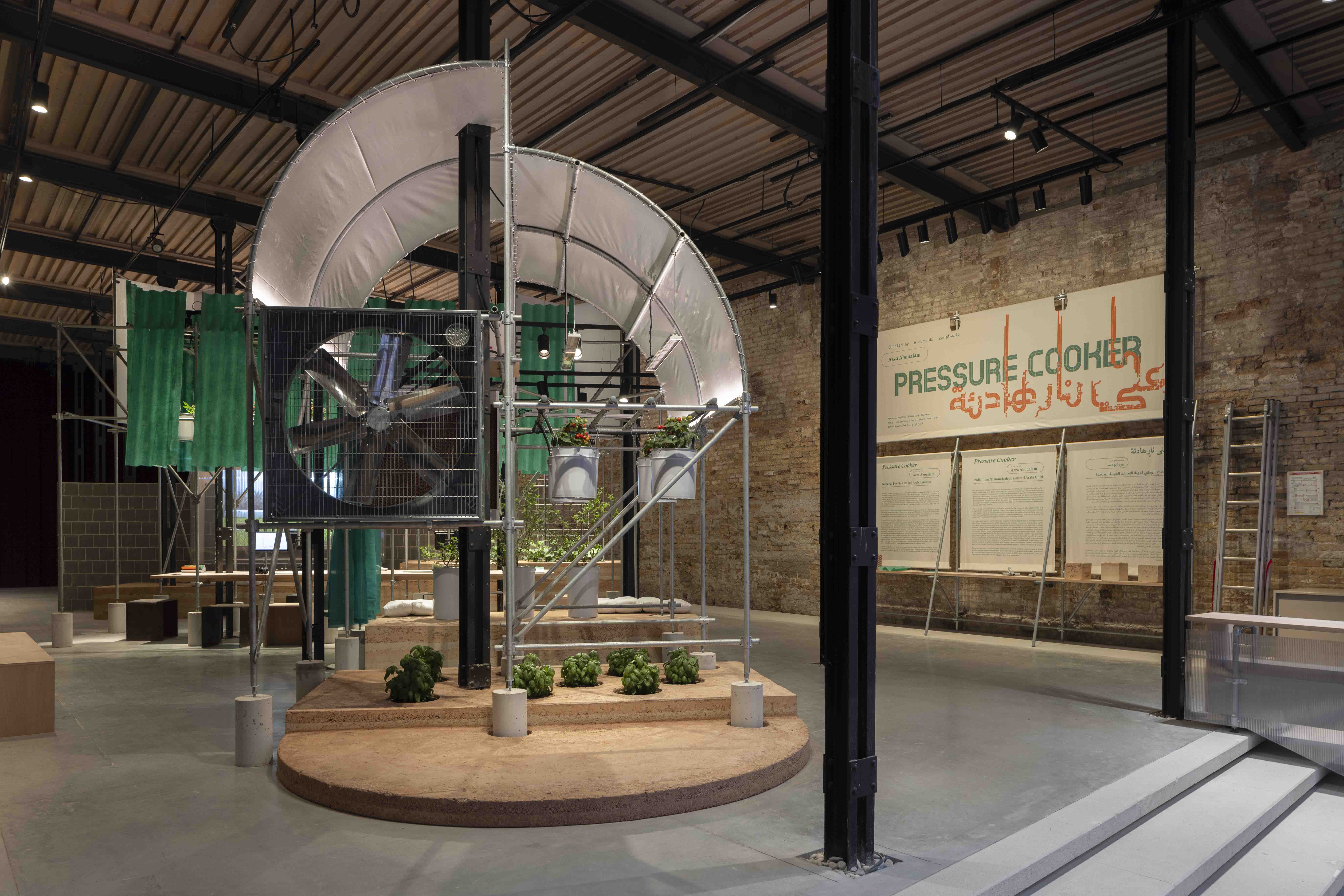
I had already interviewed Azza Aboualam-Emirati architect, Zayed University professor, and co-founder of Holesum Studio-once before, when we discussed a preview of the upcoming 19th Biennale of Architecture in Venice. Now, we’ve met again.
Azza, effortlessly elegant in a velvet cape that would make any couture house envious and wearing a sleek white gold watch, welcomed me at the UAE Pavilion in the Arsenale, where we sat down to talk about Pressure Cooker, the theme of this year’s UAE participation in the Biennale Architettura which was supported by the UAE Ministry of Culture.
The concept behind the project is simple yet powerful: to design sustainable, adaptive greenhouses that enable food production in the harsh, arid climate of the UAE.
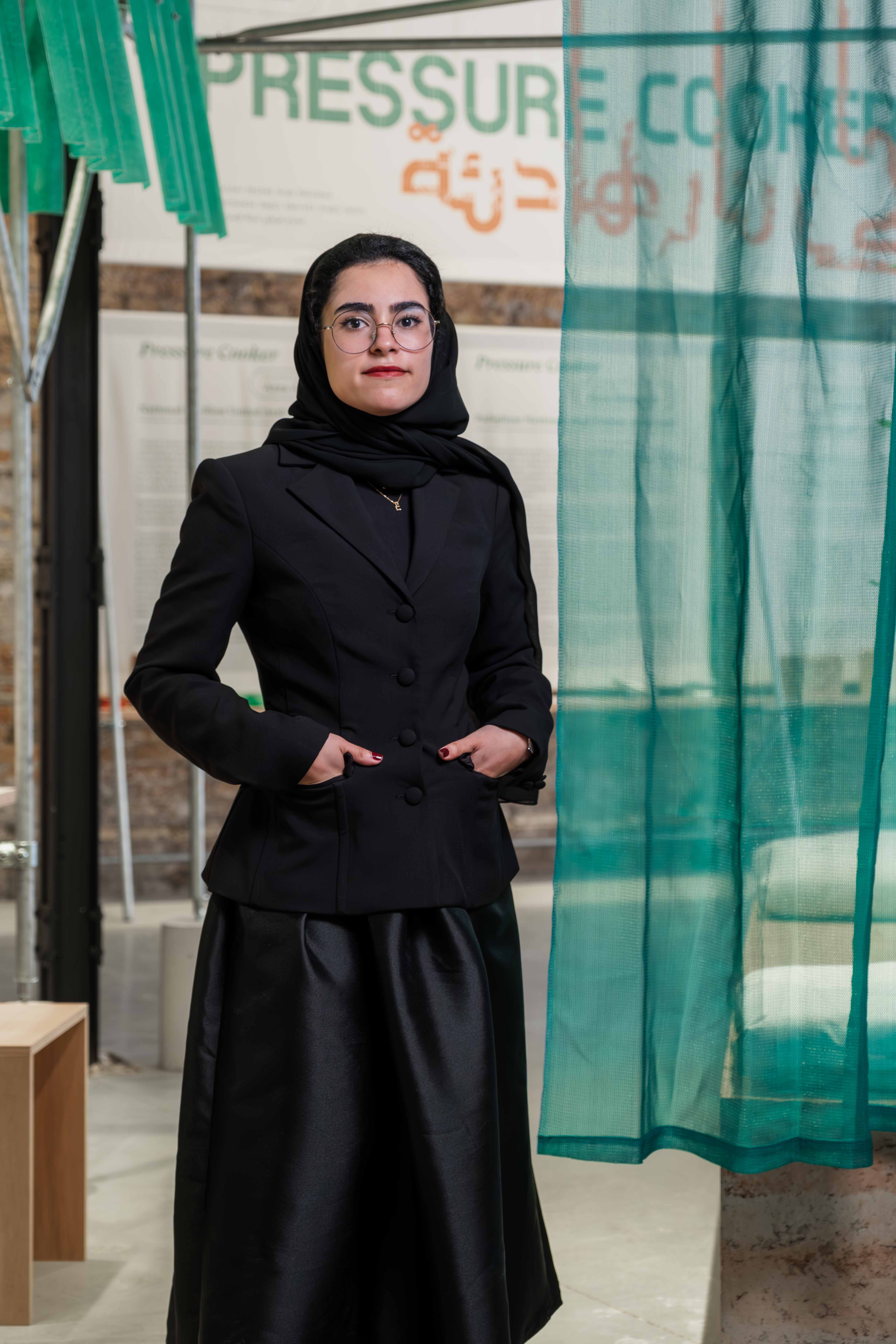
Why this focus? As Azza explained, the reasons are both strategic and cultural. “There’s the National Food Security Strategy, which aims to produce at least 51% of the country’s food domestically by 2050, currently, around 90% is imported,” she told me. “At the same time, there’s a growing awareness—among both locals and expats—about what they eat.” Interestingly, she noted that while a decade ago people were more drawn to ‘Made in Italy’ or other foreign labels, “now there’s real pride in the ‘Made in the UAE’ tag.”
For this Biennale, Azza proposed a way to encourage domestic food production by developing three different greenhouse models designed to perform under various climate conditions.
“To build these,” she explained, “I worked closely with farmers and agriculture professionals to really understand their needs—this allowed us to create a holistic system that supports actual agricultural goals.”
Within the pavilion, visitors can explore several modular greenhouse prototypes, each constructed with different configurations of key components—roofs, walls, floors, materials, and tools. These experimental structures demonstrate how environmental factors like sunlight, temperature, ventilation, and irrigation can be fine-tuned through design to optimize growing conditions. Some greenhouses focus on regionally important crops like cucumbers, while others push boundaries by supporting plants typically unsuited to desert climates—like blueberries—showing just how adaptable the concept can be.
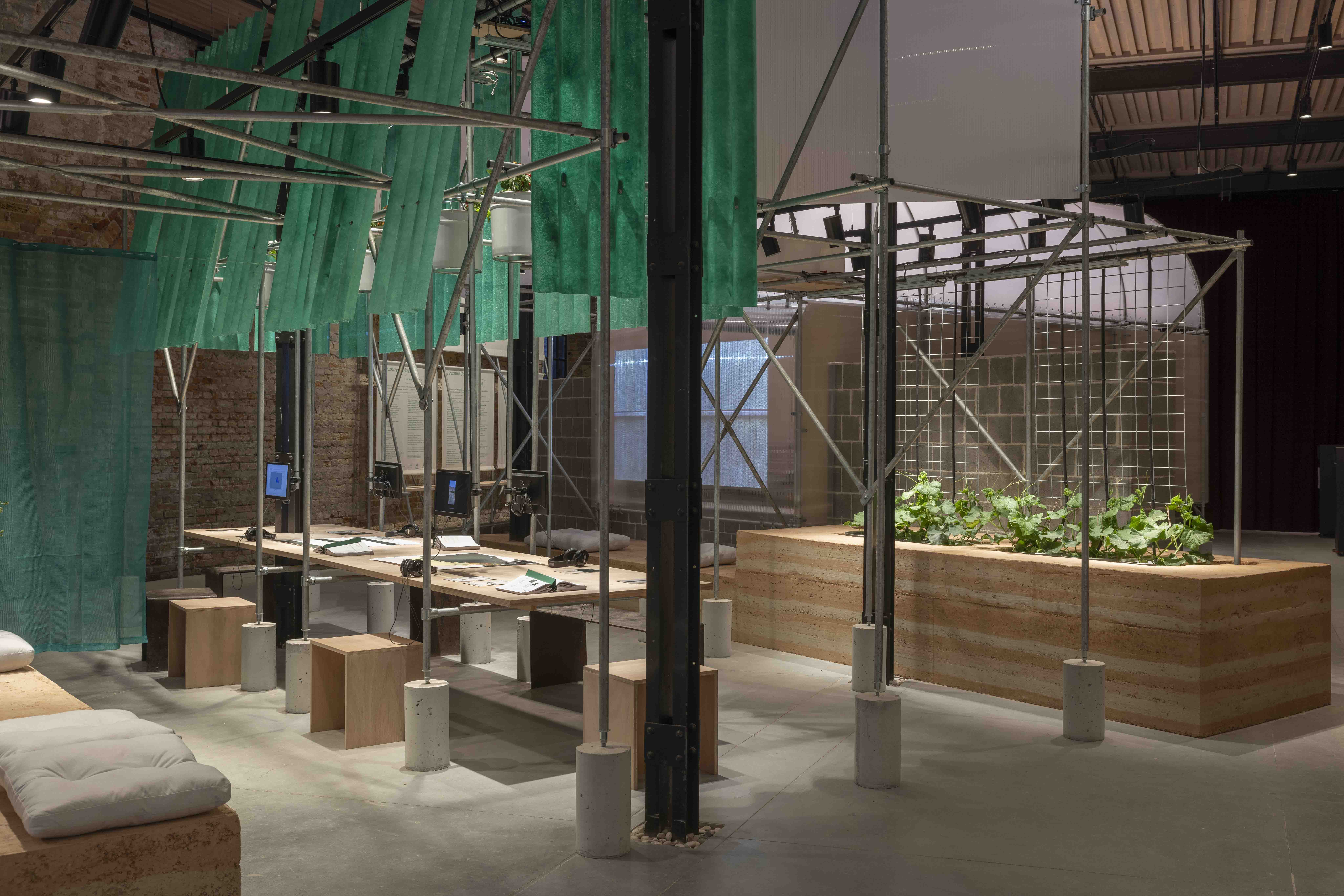
What makes the project particularly special is not just the plants, which are actively growing inside the pavilion, but also the materials used to construct the greenhouses. “I wanted them to be both environmentally and architecturally integrated into their surroundings,” Azza said. “That’s why we used traditional building materials and vernacular construction techniques. Architecture here becomes a tool for food security, not just an aesthetic or functional shell.”
The impact of Pressure Cooker extends far beyond the Biennale. This project plants a seed—both literally and symbolically—for a global conversation on agricultural resilience. It positions the UAE not just as a hub of architectural innovation, but as a potential model for sustainable food production in extreme climates. As Azza explained, “This could offer a way for people—both expats and locals—to remain in their homeland. In many parts of the world, harsh climate conditions and food insecurity force communities to leave their land permanently. By ensuring food sufficiency, we’re not just talking about survival—we’re talking about preserving identity, continuity, and a sense of belonging.”
To accompany the installation, Azza has edited Pressure Cooker Recipes: An Architectural Cookbook—a beautifully produced publication that blends field research and narrative storytelling in a cookbook format. It highlights sustainable food practices and explores how architectural thinking can support them in arid environments.
